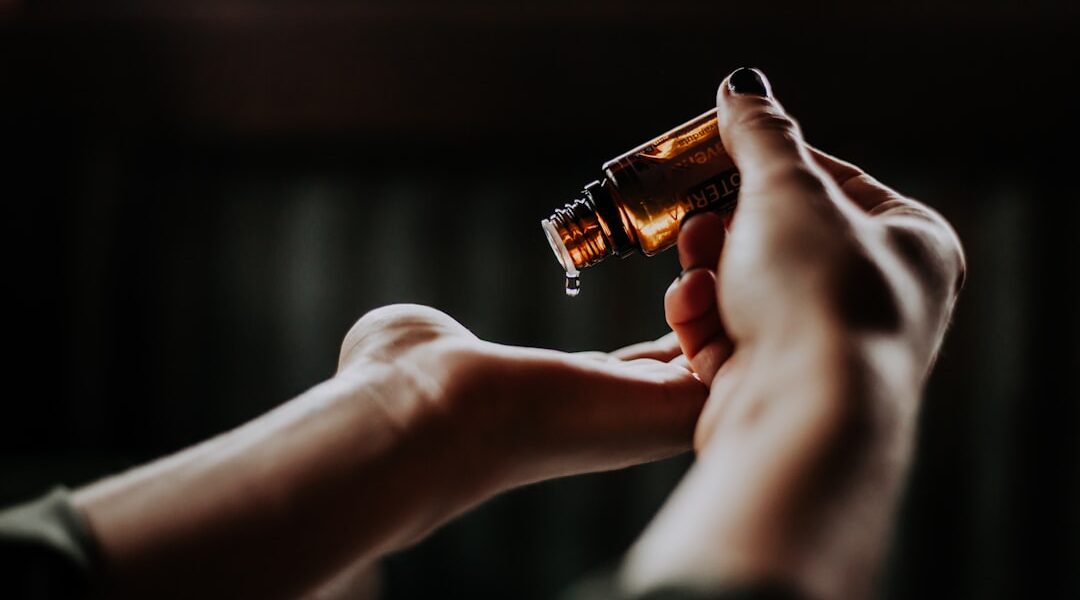Understanding your skin type is the first step in achieving better skin. There are five main skin types: normal, dry, oily, combination, and sensitive. Normal skin is well-balanced, with small pores and a smooth texture. Dry skin often feels tight and may have flakiness or rough patches. Oily skin is characterized by excess sebum production, leading to a shiny complexion and enlarged pores. Combination skin has a mix of oily and dry areas, typically with an oily T-zone and dry cheeks. Sensitive skin is prone to irritation, redness, and may react to certain products or environmental factors.
Knowing your skin type is crucial for selecting the right skincare products and developing an effective routine. For example, those with oily skin may benefit from oil-free moisturizers and gentle exfoliants to manage excess oil production, while individuals with dry skin may require richer, hydrating products to replenish moisture. By understanding your skin type, you can tailor your skincare routine to address specific concerns and achieve optimal results.
Key Takeaways
- Understanding your skin type is crucial for choosing the right skincare products and routine
- A proper skincare routine is important for maintaining healthy and radiant skin
- Choosing the right products for your skin involves considering your skin type, concerns, and ingredients
- Incorporating skin better techniques like exfoliation and moisturizing can improve skin texture and appearance
- Diet and lifestyle choices can significantly impact the health and appearance of your skin
- Common skin issues like acne, dryness, and aging can be addressed with the right skincare products and techniques
- Seeking professional help from dermatologists or skincare experts can provide personalized solutions for skin concerns
The Importance of Proper Skincare Routine
Establishing a proper skincare routine is essential for maintaining healthy, radiant skin. A consistent regimen can help address various skin concerns, such as acne, aging, hyperpigmentation, and dehydration. A basic skincare routine typically includes cleansing, exfoliating, moisturizing, and applying sunscreen. Cleansing removes dirt, oil, and impurities from the skin, while exfoliating helps slough off dead skin cells for a smoother complexion. Moisturizing is crucial for hydrating the skin and maintaining its natural barrier function, while sunscreen protects against harmful UV rays that can cause premature aging and skin damage.
In addition to these fundamental steps, incorporating targeted treatments such as serums, masks, and eye creams can further enhance the effectiveness of your skincare routine. Consistency is key when it comes to skincare, as regular use of products over time can lead to noticeable improvements in skin texture, tone, and overall appearance. By prioritizing a proper skincare routine, you can proactively care for your skin and minimize the risk of developing common skin issues.
Choosing the Right Products for Your Skin
Selecting the right skincare products for your specific skin type and concerns is crucial for achieving optimal results. With a myriad of options available in the market, it’s important to understand the key ingredients and formulations that are best suited for your individual needs. For example, individuals with acne-prone skin may benefit from products containing salicylic acid or benzoyl peroxide to help combat breakouts and reduce inflammation. Those with sensitive skin should opt for gentle, fragrance-free formulas that are less likely to cause irritation or allergic reactions.
When choosing skincare products, it’s also important to consider factors such as your age, lifestyle, and environmental influences. For instance, mature skin may benefit from anti-aging ingredients like retinol and peptides to target fine lines and wrinkles, while individuals living in sunny climates should prioritize sunscreen with high SPF protection. Additionally, incorporating natural and organic skincare products can be beneficial for those seeking clean, non-toxic options that are gentle on the skin.
Incorporating Skin Better Techniques
| Technique | Benefits | Results |
|---|---|---|
| Exfoliation | Removes dead skin cells, unclogs pores | Smoother, brighter skin |
| Moisturizing | Hydrates the skin, prevents dryness | Soft, supple skin |
| Skin Tightening | Improves elasticity, reduces sagging | Firmer, more youthful skin |
In addition to using skincare products, incorporating skin better techniques can further enhance the health and appearance of your skin. Facial massage, for example, can help improve circulation, promote lymphatic drainage, and reduce tension in facial muscles, leading to a more radiant complexion. Gua sha and facial rollers are popular tools used in facial massage to help sculpt and contour the face while boosting the absorption of skincare products.
Another skin better technique is facial steaming, which involves exposing the skin to steam to open up pores and facilitate the removal of impurities. This can be particularly beneficial for individuals with congested or acne-prone skin. Additionally, regular facial steaming can enhance the penetration of skincare products and promote a healthy glow.
Furthermore, incorporating regular exercise into your routine can have a positive impact on your skin. Physical activity increases blood flow, delivering oxygen and nutrients to the skin while promoting the production of collagen for improved elasticity. Exercise also helps reduce stress levels, which can contribute to clearer, healthier-looking skin.
The Role of Diet and Lifestyle in Skin Better
The role of diet and lifestyle in achieving better skin should not be underestimated. A well-balanced diet rich in fruits, vegetables, lean proteins, and healthy fats provides essential nutrients that support overall skin health. Foods high in antioxidants, such as berries, spinach, and nuts, can help protect the skin from oxidative stress and free radical damage. Omega-3 fatty acids found in fish, flaxseeds, and walnuts are beneficial for maintaining skin hydration and reducing inflammation.
Hydration is also key for healthy skin, so it’s important to drink an adequate amount of water each day to keep the skin hydrated from within. Limiting consumption of sugary and processed foods can help prevent glycation, a process that can lead to accelerated aging of the skin.
In addition to diet, lifestyle factors such as stress management and quality sleep play a significant role in skin health. Chronic stress can trigger inflammation and exacerbate various skin conditions such as acne, eczema, and psoriasis. Practicing relaxation techniques such as meditation, yoga, or deep breathing exercises can help mitigate stress levels and promote a more balanced complexion. Quality sleep is essential for cellular repair and regeneration, so aim for 7-9 hours of uninterrupted sleep each night to support optimal skin function.
Common Skin Issues and How to Address Them

Common skin issues such as acne, hyperpigmentation, fine lines, and dehydration can be addressed through targeted skincare treatments and lifestyle modifications. Acne-prone skin may benefit from incorporating products containing salicylic acid or benzoyl peroxide to help unclog pores and reduce inflammation. Regular exfoliation with gentle chemical exfoliants like AHAs or BHAs can also help prevent breakouts by removing dead skin cells and promoting cell turnover.
Hyperpigmentation, or dark spots on the skin, can be treated with ingredients like vitamin C, niacinamide, and hydroquinone to brighten the complexion and even out skin tone. Sunscreen is also crucial in preventing further pigmentation from sun exposure.
Fine lines and wrinkles can be minimized with the use of retinoids or peptides that stimulate collagen production and improve skin elasticity. Hyaluronic acid-based products are effective for addressing dehydration by attracting moisture to the skin and maintaining hydration levels.
In some cases, professional treatments such as chemical peels, microdermabrasion, or laser therapy may be recommended to address more stubborn or severe skin concerns. Consulting with a dermatologist or skincare professional can help determine the most appropriate course of action for addressing specific skin issues.
Seeking Professional Help for Skin Better
While a consistent at-home skincare routine is important for maintaining healthy skin, seeking professional help from a dermatologist or skincare specialist can provide valuable insights and personalized recommendations for achieving better skin. A professional assessment of your skin type, concerns, and goals can lead to tailored treatment plans that may include prescription-strength products or in-office procedures.
Dermatologists are trained to diagnose and treat a wide range of skin conditions, from acne and eczema to more complex issues like rosacea or melanoma. They can offer medical-grade treatments such as prescription retinoids, topical antibiotics, or corticosteroids to address specific concerns.
Skincare specialists such as estheticians are experts in skincare treatments and can provide professional facials, chemical peels, microdermabrasion, and other advanced therapies to improve the health and appearance of the skin. They can also recommend suitable skincare products based on your individual needs and preferences.
In conclusion, achieving better skin involves understanding your skin type, establishing a proper skincare routine, choosing the right products, incorporating effective techniques, considering diet and lifestyle factors, addressing common skin issues, and seeking professional help when needed. By prioritizing these aspects of skincare, you can work towards maintaining healthy, radiant skin that looks and feels its best.
If you’re looking to improve the health and appearance of your skin, you may want to check out this article on Fit Revolution Zone about the benefits of incorporating exercise into your skincare routine. Fit Revolution Zone offers valuable insights on how physical activity can help improve circulation, reduce stress, and promote overall skin health. By combining exercise with a good skincare regimen, you can achieve better results and a glowing complexion.
FAQs
What is Skin Better?
Skin Better is a skincare brand that offers a range of products designed to improve the appearance and health of the skin. Their products are formulated with advanced technology and high-quality ingredients to address various skin concerns.
What types of products does Skin Better offer?
Skin Better offers a wide range of skincare products, including cleansers, moisturizers, serums, eye creams, sunscreens, and treatments for specific skin concerns such as aging, discoloration, and acne.
Are Skin Better products suitable for all skin types?
Skin Better products are formulated to be suitable for a wide range of skin types, including normal, dry, oily, combination, and sensitive skin. However, it is always recommended to consult with a skincare professional before starting a new skincare regimen.
Are Skin Better products tested on animals?
Skin Better is committed to cruelty-free practices and does not test their products on animals. They also do not sell their products in countries where animal testing is required by law.
Where can I purchase Skin Better products?
Skin Better products are available for purchase through authorized skincare professionals, such as dermatologists, plastic surgeons, and medical spas. They are not sold through unauthorized online retailers to ensure the authenticity and quality of the products.




